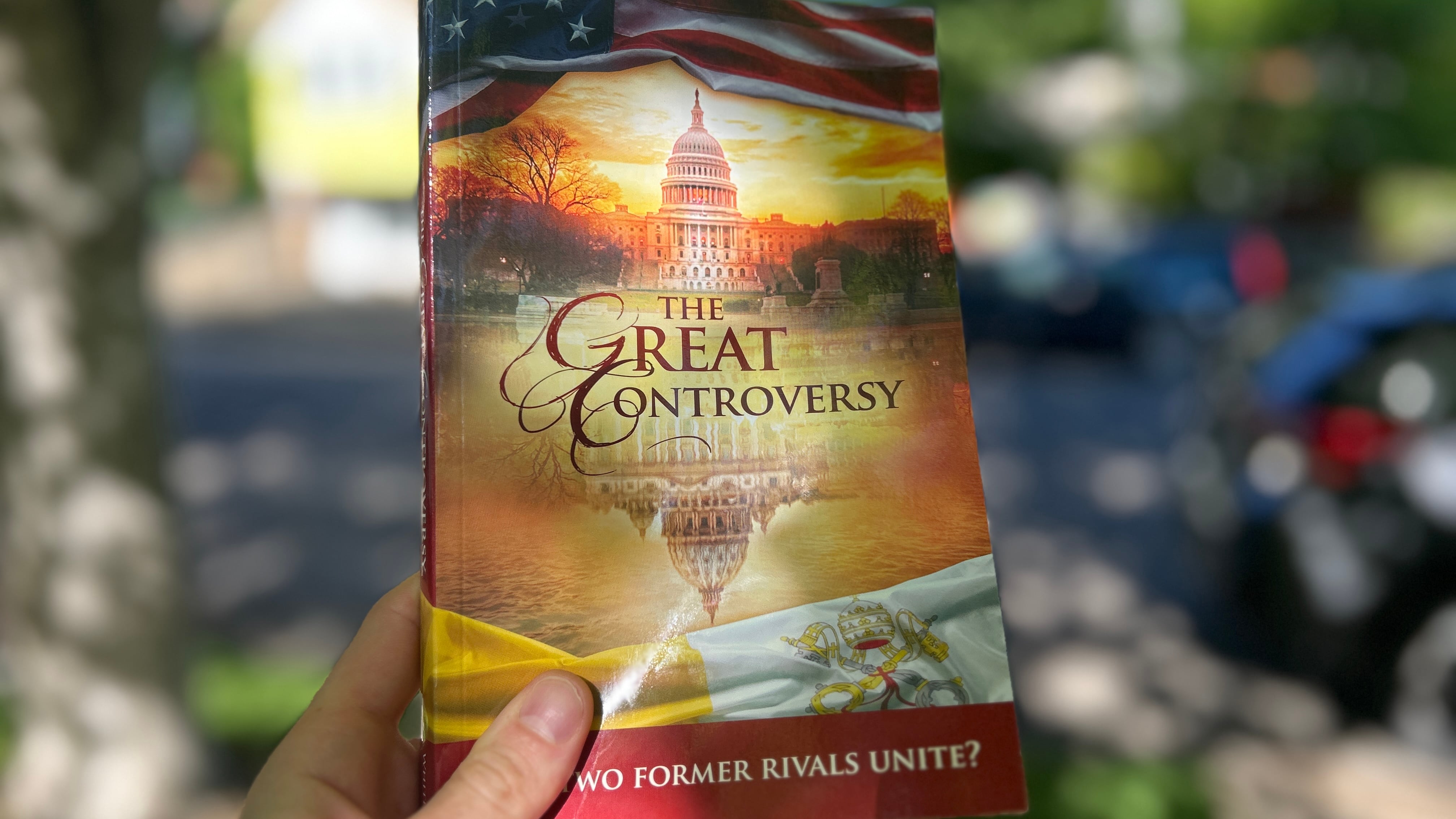Portlanders of all stripes have opened their mailboxes in the past week to find, to their surprise, an unsolicited copy of The Great Controversy.
The 473-page paperback book authored by the founder of the Seventh-day Adventist Church promises to tell the “untold story behind the Vatican’s rising influence in America.” It was written in 1858, and is now being mass distributed by a 34-year-old family-run nonprofit in Coldwater, Mich., that has made a habit of blanketing cities across the United States with evangelizing texts.
As a nonprofit, Remnant enjoys “significantly reduced” postage rates from the U.S. Postal Service, which has hit financial headwinds in recent years and received a $10 billion bailout during the pandemic.
But the unsolicited gifts have annoyed many Portlanders, who have taken to social media to decry the waste of paper and postage.
Portland is only Remnant’s latest target. A webpage on its website solicits donations to the “Great Controversy Project,” which “helps Remnant Publications do mass distributions of The Great Controversy in major cities and even whole states across North America.”
It raised $8 million in 2020 and paid a total of $140,000 in income to the three men who run it, according to its latest public filing with the Internal Revenue Service.
Remnant Publications has previously sent millions of copies of the book to Chicago, Philadelphia and New York. Most recently, its blanketed ZIP codes in West Virginia and Vermont. Now, it has shifted focus to Portland.
“Will you please help Remnant Publications place this precious book in the hands of dear souls in Portland, OR?” the website asks, before soliciting a $1,000 donation.
Remnant Publications did not respond to a request for comment. But Portland’s selection may not be random.
In 2016, the Chicago Tribune reported that the Windy City had been similarly targeted due to its crime problems. The nonprofit’s CEO, Dwight Hall, explained his reasoning for the mass mailings: “The biggest thing is [the donors] can help somebody to have a better way of life. That’s the whole reason for this,” he said.
Better in what way, though? What succor can Portlanders troubled by random dog attacks and squatters’ den fires hope to take from The Great Controversy, written by Ellen G. White? The book purports to be a consideration of the growing influence of the Catholic Church on American life (a spicy topic in 1858) before pivoting to White’s contention that the most violent divide among Christians will soon be whether the Sabbath falls on Saturday or Sunday.

